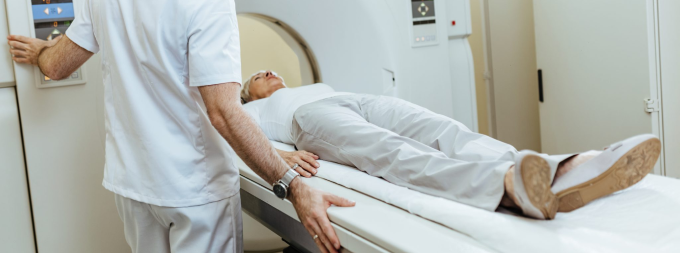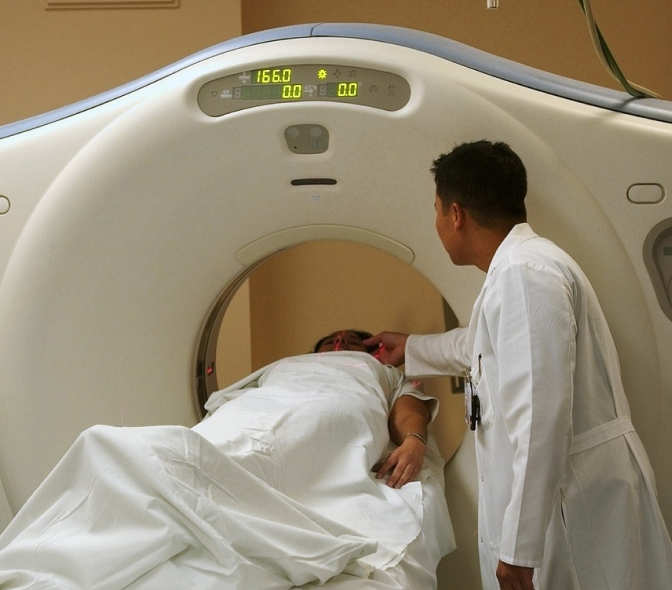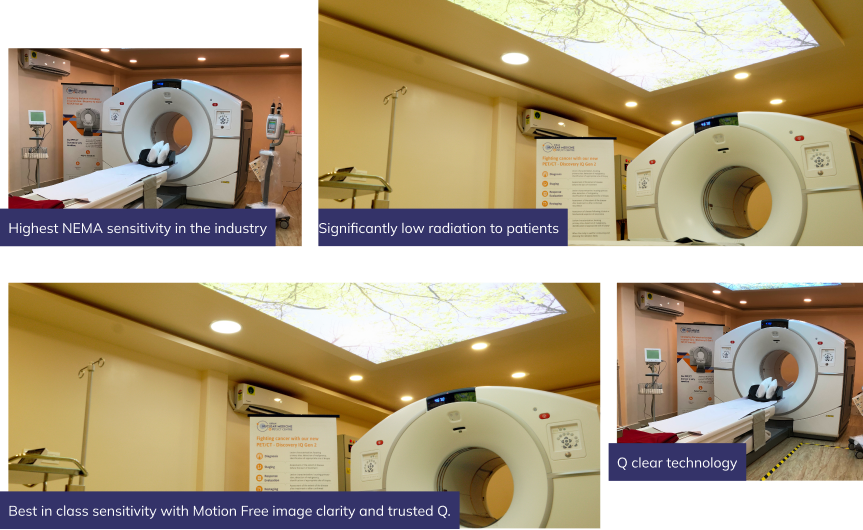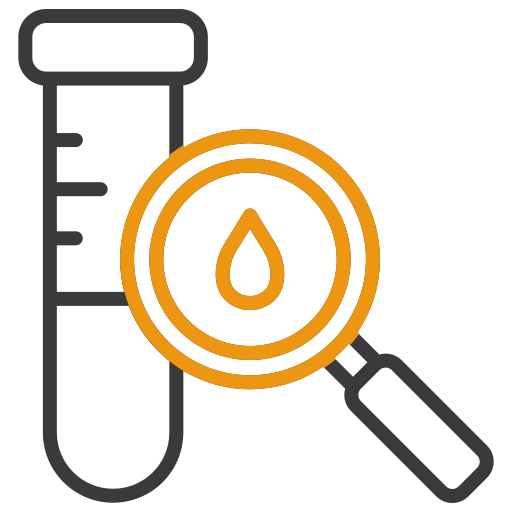PSMA PET Scan in Bangalore
Home » PSMA PET CT SCAN
- 100 % accurate PSMA PET scan reports with high image quality, with our latest scan technology
- 5000+ prostate cancer patient service with utmost care
- Clean and sanitized premises
- Low wait time, well trained staff with the best team of doctors.

What is a PSMA PET Scan?
Uses Of PSMA PET Scan
- Prostate Cancer Detection: PSMA PET scans are highly sensitive in detecting primary prostate tumors, as well as metastases to lymph nodes, bones, and other organs.
- Prostate Cancer Staging : PSMA PET scan aids in accurately staging prostate cancer by assessing the extent of disease spread beyond the prostate gland.
- Prostate Cancer Recurrence: PSMA PET scan is valuable in detecting recurrent prostate cancer after initial treatment, even at low PSA levels
- Treatment Response Assessment : PSMA PET scan helps to evaluate the response to prostate cancer treatments, such as surgery, radiation therapy, or hormone therapy
- Treatment Planning : PSMA PET scan guides treatment planning by providing precise localization of prostate cancer lesions, facilitating targeted therapies and minimizing side effects
- Research & Clinical Trials : PSMA PET scan plays a vital role in prostate cancer research & clinical trials, facilitating the evaluation of new treatments & providing comprehensive insights of the disease
What to Expect During The Procedure Of PSMA Scan in Bangalore
- Preparation: Patients may need to follow specific instructions, such as fasting or medication adjustments, before the scan
- Scan: The patient lies on a scanner table, which moves through the PET and CT scanners. It s essential to remain still during the scan for clear images
- Post-Scan: After the scan, patients can resume their normal activities. Specific instructions may be provided based on the type of scan and tracer used
- Safety and Risks: PSMA PET scan involve exposure to radiation from the tracer, but the benefits typically outweigh the risks. Radiation doses are carefully regulated, and efforts are made to minimize exposure. The procedure is generally safe, but patients should discuss any concerns with their healthcare provider

The Next Generation Technology is Here at Kiran PET CT - GE-DISCOVERY IQ GEN 2

Why Choose Us For PSMA PET Scan in Bangalore

Speedy and accurate results
Our PET/CT scans deliver swift & precise diagnoses, ensuring timely insights into your health

Skilful certified team of nurses
Trust in the expertise of our skilled professionals who are dedicated to providing unparalleled care

World Class Technology
Experience the latest advancements in medical imaging technology with our state-of-the-art PET/CT equipment.

Onestop Lab Centre
Streamline your healthcare journey with our comprehensive lab services under one roof.
Conclusion
Meet Our Doctors
Frequently Asked Questions
This question seeks an understanding of the purpose and capabilities of a PSMA PET scan, including its ability to detect prostate-specific membrane antigen (PSMA) expression in prostate cancer cells.
Patients often want to know how a PSMA PET scan compares to other imaging modalities in terms of accuracy, sensitivity, and specificity, particularly in detecting metastatic prostate cancer or cancer recurrence.
This FAQ addresses the typical medical conditions or purposes for which a healthcare provider might recommend a PSMA PET scan, such as staging prostate cancer, detecting metastases, or assessing treatment response.
Safety concerns regarding radiation exposure and potential allergic reactions to the radioactive tracer used in PSMA PET scans are addressed in response to this question.
Patients often want to know what preparations are necessary before undergoing a PSMA PET scan, including fasting requirements, medication adjustments, and any specific instructions from their healthcare provider.
This question addresses the procedure itself, including whether the patient will need to lie still, receive an injection of the radioactive tracer, and how long the scan will take. Additionally, it may address any potential side effects or discomfort during or after the procedure.




